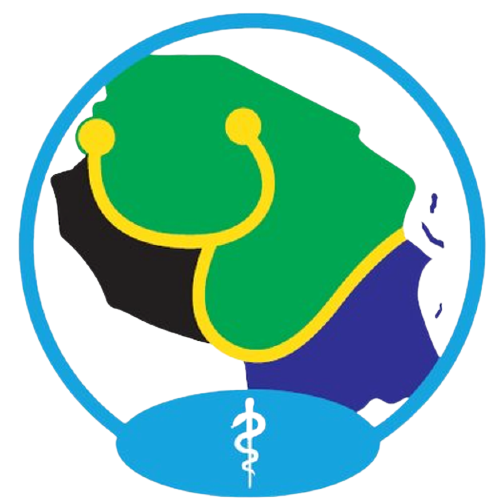Our Stories
Climate Change Is A Health Crisis: Strengthening Tanzania’s Resilience From The Ground Up

12th June 2025 | Climate and Health
At the AHDA Forum, leaders and youth united to tackle climate-driven health threats. The message was clear: building resilient communities means urgent action, empowered health workers, and youth-led solutions—now, not later.
“Climate change is not a moment — it is a movement. You need to be prepared all the time,” declared Dr. Ntuli Kapologwe of the Ministry of Health, opening the AHDA Forum under the theme “Building Healthy and Resilient Communities in the Face of Climate Change.” His words set a tone of urgency, reminding attendees that climate disruption is no longer abstract—it is a public health emergency in Tanzania today.
The forum convened an influential gathering of public health officials, civil society representatives, health practitioners, regional planners, researchers, and youth advocates. With 56 percent of public health outbreaks between 2011 and 2021 linked to climate-related events, the nexus between climate variability and health instability has become undeniable. Panelists highlighted that heat waves, floods, droughts, and changing rainfall patterns have exacerbated malaria, cholera, respiratory infections, and malnutrition across multiple regions.
Speakers including Dr. Frolence Temu of Amref Health Africa, Isack Kaniki of AHDA, and Vivian Joseph of the SADC Youth Forum emphasized that climate resilience must be locally led and community grounded. The discussion focused on translating high-level climate science into tangible action plans within Tanzania’s health system, especially in vulnerable areas.
Community health workers were identified as critical actors. These local frontline workers interact daily with populations most affected by climate events. Yet only X percent currently report receiving training on climate-health interventions, and many lack access to early warning systems. During the forum, recommendations called for integrating climate adaptation training into existing health curricula, issuing mobile apps and communication tools, and formalizing community health workers within climate-health coordination teams.
Forum participants urged policymakers to embed climate risk mapping into national public health frameworks. Only Y of Tanzania’s regional health plans presently contain climate-sensitive disease mapping or environmental surveillance mechanisms. By aligning public health planning with region-specific risk profiles, authorities can anticipate disease outbreaks triggered by flooding or heat stress and respond proactively.
Food insecurity surfaced as a pervasive climate-health concern. Panelists reported rising rates of malnutrition—particularly among children under five and pregnant women—in drought-prone zones. They advocated for promoting sustainable agriculture practices, investment in drought-resistant crops, and linking community farming initiatives with maternal and child health interventions. These strategies help ensure nutritional resilience during periods of environmental stress.
Youth engagement emerged as a dynamic area for resilience building. Vivian Joseph called for an expanded leadership role for youth:
“Our generation is living this crisis. We don’t just want to adapt—we want to lead.”
The forum recommended youth-led climate-health innovation hubs, grants for local projects, mentorship programs, and representation on policymaking platforms. Youth involvement is seen not as optional but vital to sustained local impact.
Infrastructure hardening and emergency preparedness planning were also focal points. Speakers stressed that many rural clinics remain unprepared for climate shocks. Recommendations included reinforcing health facilities to withstand floods, ensuring backup power systems, improving water and sanitation systems, and establishing climate-responsive referral networks for emergency care.
Representative Isack Kaniki highlighted the necessity of system-wide collaboration:
“Ministries responsible for health, environment, disaster management, and agriculture must work together, using data and local leadership.”

The forum urged the government to formalize these collaborations through inter-ministerial task forces and shared data systems. Real-time environmental monitoring, integrated with health surveillance, can enable early detection of outbreaks triggered by climate anomalies.
One strong consensus was the need for disaggregated data frameworks. Without clear information on how climate events affect different genders, ages, and regions, effective planning remains out of reach. Only Z national health surveys currently include climate-related indicators alongside demographic filters. Improved data collection systems were called for to monitor climate-sensitive disease trends, nutrition statuses, and community-level resilience markers.
The closing session, moderated by Aloyce Urassa from AHDA, emphasized that resilience is not achieved through occasional projects—it requires sustained investment, planning, and accountability. Dr. Temu summarized:
“Donors and governments cannot talk about climate health in abstract. Investments must reach terrain level, empowering communities.”
A final set of forum resolutions outlined a multi-sectoral roadmap:
1. Mainstream climate-health integration into all levels of health policy and planning.
2. Train and empower community health workers, equipping them with tools and inclusion in surveillance systems.
3. Expand youth-led resilience initiatives, with grants, skills-building, and policymaker engagement.
4. Support climate-informed farming and nutrition programs that safeguard vulnerable populations during droughts and floods.
5. Strengthen infrastructure resilience, including clinic fortification, reliable water systems, and climate-responsive referral networks.
6. Improve data systems to regularly capture and analyze climate-sensitive health outcomes across population groups.
7. Establish inter-ministerial data-sharing mechanisms to enable coordinated emergency response planning.
With these resolutions, the AHDA Forum concluded with a unified message: climate change is not a future scenario; it is a force reshaping public health today. Only through locally driven adaptation strategies, data-backed planning, and cross-sector collaboration can Tanzania build climate-informed healthcare systems poised to protect communities.
As the forum adjourned, delegates departed with renewed purpose. The words of Dr. Kapologwe summed up the sentiment:
“Our health system must evolve as fast as the climate changes. Otherwise, we fail not just communities—we fail generations.”
With that charge, the forum handed the baton to Tanzania’s leaders, youth, health workers, and communities — calling on all to turn climate-health ambition into measurable action.
For more details about PARTNERS, click the link: https://ths.or.tz/partners/
Register via the link: https://ths.or.tz/registration-selection/

